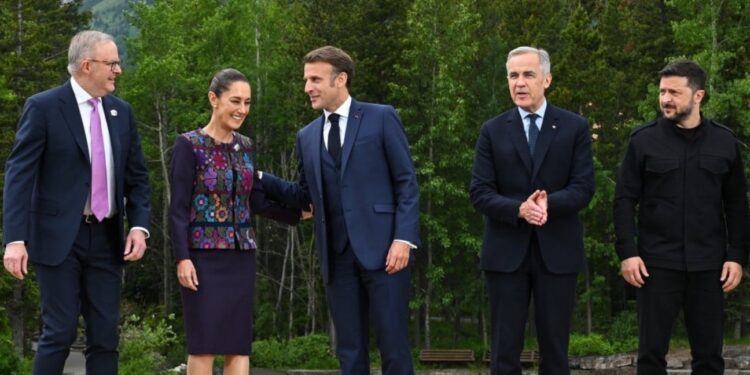G7 Leaders issue joint Communiqué on Artificial Intelligence The G7 has come to an end today and the leaders of the G7 released for the first time a common statement on developing AI, as well as the technological control and desired effects the G7 would like to achieve.
The “G7 Leaders’ Statement on AI for Prosperity,” highlights the importance of a human-focused vision for AI and the need for investment, responsible governance and inclusivity.
While acknowledging the potential of AI to boost economic prosperity, competitiveness, and effectiveness in meeting global challenges, G7 leaders highlighted the need for secure, trustworthy, and responsible AI.
One of the key deliverables of the summit is the “G7 AI Adoption Roadmap,” detailing tangible steps that businesses, especially Small and Medium-sized Enterprises (SMEs), can take to incorporate AI and grow their businesses.
This would include commitments to continued investment in AI adoption initiatives, a shared framework for SME AI adoption, and closer collaboration on talent exchange.
The statement also touches on the vital importance of creating future-proofed workforces, given that AI-fuelled transitions are very likely. G7 committed to carrying forward the 2024 G7 Action Plan for a human-centered AI in the world of work, to develop a voluntary compendium of best practices.
In addition, the leaders pledged to support STEM education and to push for women’s inclusion in the world’s AI workforce , which they say will lead to economic growth and equal access for all.
The G7 also raised fears about the amount of energy AI uses, noting the increasing burden on energy grids and the necessity for innovative solutions. The announcement highlighted the role of AI in unlocking energy innovation, and shaping secure, resilient and affordable energy systems.
The G7’s initiative builds on the “Hiroshima AI Process,” a program that strove for made-in-Japan AI technology to help create AI that is safe, secure, and trustworthy around the world.
This statement is an expression of the new will to continue to turn common principles into practical measures for building consumer confidence and unlocking market opportunities in all sectors.
The leaders also pledged to deepen cooperation with partners in emerging markets and developing countries for narrowing digital divides and managing the spread of new technologies to ensure their benefits are felt by all.
That includes backing for ventures like the AI Hub for Sustainable Development, which will formally launch in Rome this month by the hands of local innovators as they work to boost African AI ecosystems.
Prime Minister Modi of India, addressing the Outreach Session, re-asserted India’s human-centered model for technology and AI and underlined that the real impact of AI would be when it works in harmony with nature and is used to further the welfare of every human being, including those in the Global South.
He also emphasized that international governance was necessity to manage AI, for example dealing with issues such as deepfakes, and that cooperation across the world was needed in this century driven by technology.










![Online Scam Cases Continue to Rise Despite Crackdowns on Foreign Fraud Networks [Myanmar] Online Scam Cases Continue to Rise Despite Crackdowns on Foreign Fraud Networks [Myanmar]](https://sumtrix.com/wp-content/uploads/2025/06/30-12-120x86.jpg)




